 I had no idea what to expect. I have never said goodbye to 700 best friends before. This morning I was asked what I thought of last night’s going away celebration and blessing. My response was to say, that, “I never dreamed that I could ever experience anything remotely like that in my lifetime.” So different from other mile markers in life like birthdays, weddings, or graduations—leaving a congregation as a minister is a truly person-focused event with a great deal of sadness and reflection. I thought slideshows and speeches of that quality and scope happened only at funerals! What a gift it is to see yourself through others’ eyes while still very much alive. I never thought I would have that opportunity in my life, and it will stay with me always. Ministry for me, as I often have said, is about seeing God’s workings in you The People and affirming it and nurturing it. I never take any credit for the ministries that have happened on my watch. That just feels wrong when you all do the work. I describe this work as being a cheerleader of the awe of the Holy Spirit on a playing field of wonder of the capacity of the Holy. Even today, I cannot believe that I have had the privilege to accompany and creatively enable your ministries of love and activism. Thank you, as I heard you say last night, for offering me a small stake in claiming those ministries as my own. I am Deeply Humbled. I am blessed that my first time of closure to a ministry (this time of leaving Plymouth) has been so well marked with clarity of calling, celebration of mutual gifts, and deep and lasting love. Thank you for the greatest gift of all—a healthy and whole time of sending and leaving! There is no way to put a value on that gift of graciousness and kindness. Since the vast majority of the financial gifts offered to me, which totaled a VERY generous sum combined, were channeled through the church into one check, I won’t ever know who contributed or how much. This is a blessing because I received that gift of sending with gratitude to everyone equally: the whole congregation. It does mean that I won’t be able to write my usual hand written thank you notes to each person who gave! I will have to let that go. Do know how profound my gratitude is today for your generosity. Additionally, in the midst of moving, I might miss a thank you note or two in these times. I might not have the chance to tell each and every one of you how deep my gratitude is for you and what you have shared with me over these years. I might not be able to say in person how much I have loved you and your gifts shared with our community. I might not have that opportunity to tell you thank you before leaving for Connecticut. Even today, as I pack my office and home into cardboard boxes, I still have no idea what to expect. I have never said goodbye to 700 best friends before. It will be a process, but I am so grateful for our shared ministries and mutual gratitude that transcends the need for even handwritten thank you notes. :) Speaking of handwritten… I am going to ask that if you choose to stay in contact with me (as we are making a special allowance for Plymouth as my home church) that you consider doing so primarily through handwritten correspondence. First, as a millennial who will be busy with a new call and large congregation, emails get lost and feel like work. Facebook emails are perhaps even worse! The secret is out: millennials hate long narrative emails. Secondly, I love writing handwritten letters. I cannot write to each of you right now as I wish I could (I did consider writing a note to everyone in the directory, but then my spouse thought that wouldn’t be wise… he was right). Send a postcard of the mountains once in a while and know that Plymouth will always be in my prayers. The Rev. Jake Miles Joseph 122 Broad Street Guilford, CT 06437 Adieu, Plymouth! Thank you for the opportunity to dream with you and to serve your mission and witness these past nearly five years. It has truly been the gift of a lifetime. Sincerely in Gratitude, The Rev. Jake Joseph AuthorThe Rev. Jake Miles Joseph ("just Jake") came to Plymouth in 2014 having served in the national setting of the UCC on the board of Justice & Witness Ministries, the Coalition for LGBT Concerns, and the Chairperson of the Council for Youth and Young Adult Ministries (CYYAM). Jake has a passion for ecumenical work and has worked in a wide variety of churches and traditions. As of August 2019, he serves First Congregational Church of Guilford, Connecticut. On August 24th, something magical will happen in Plymouth’s parking lot and front lawn! On August 24th, we will perform a miracle of goodwill and community strength. On August 24th, lives will be changed by the collective efforts of everyone both great and small.  On Saturday, August 24th, God will use Plymouth to transform unused belongings (surplus stuff, material possessions) into the greatest blessing of all—an affordable, attainable, safe home for a neighbor in our community. It is an additional miracle for Fort Collins, this year, because it is our community’s first ever Multi-Faith Build. In order to accomplish this transformation in our parking lot, your Habitat for Humanity Ministry team needs your help! We are asking for you to drop off your unused and surplus belongings in our Fellowship Hall on Wednesday morning August 21st, Thursday afternoon August 22nd, and any time all day on Friday, August 23rd. We are also seeking donations of baked goods to sell at the sale in addition to the typical garage sale items. The Habitat for Humanity Ministry Team is also issuing a “giving-challenge” this year for everyone to look for one $50 or more valued item to donate that they are not using or do not currently need. We all have these things around. I know I do. In addition to donating low-value items, adding one nice item each can help make all the difference. This will help us meet a higher giving goal and help empower the work God is doing through our Habitat ministry in Fort Collins. Finally, please sign up to volunteer for the collection and organizing days during the week and for the sale itself! The signup is on the bulletin board. Non-Plymouth community members are welcome as well. Turns out that we also need customers (a lot of them) to make this work. :) Help us spread the word throughout Northern Colorado that a miracle will happen at Plymouth on August 24th... and everyone is invited to be part of it by shopping and donating! This is my prayer for Plymouth on the 24th of August—that God will be present in our donations, our volunteering, and sales to help make home possible in this city for one of our neighbors. In Habitat Hope, Jake More Information About our Partner Family AuthorThe Rev. Jake Miles Joseph ("just Jake"), Associate Minister, came to Plymouth in 2014 having served in the national setting of the UCC on the board of Justice & Witness Ministries, the Coalition for LGBT Concerns, and the Chairperson of the Council for Youth and Young Adult Ministries (CYYAM). Jake has a passion for ecumenical work and has worked in a wide variety of churches and traditions. Read more about him on our staff page. 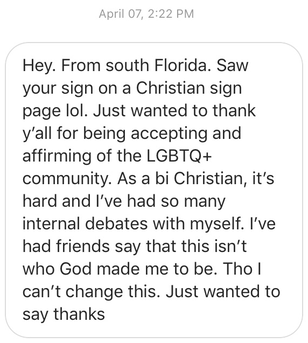 “Do the rainbows come off… you know, for funerals and stuff like that?” “I bet that [the rainbow on the new sign] was your idea…[wink]” The variety of names is vast: Open and Affirming (ONA), Reconciling in Christ (RIC), Welcoming Communities Network (WCN), Believe Out Loud Parish, More Light, Covenant Network, Affirmation, etc. Whatever you call it doesn’t really matter. We don’t really care what it is called. We care how it behaves. What matters is the theological risk you are willing to take to safeguard a community that is more out than ever... and therefore more vulnerable than ever before. The more out we are as LGBTQ Christians, the more reactionary current politics, the more we need the Open and Affirming movement to continue and deepen. With the regression of rights and safe spaces around the world, especially from the highest levels of power, the Open and Affirming movement is only just getting started. Likewise, the durability of the movement is only now being tested. It is no longer just about Marriage Equality and “love is love.” That was easy! Now it is about our whole identity together as Christians. Plymouth has been Open and Affirming since 2001, offering a generous welcome and affirmation to the LGBTQ Community in Fort Collins and serving as a beacon for the LGBTQ-Affirming Church movement across our entire region. As a congregation, we have changed many lives including my own. This openness and affirmation were put to the test in 2005 when a lost and scared Evangelical high school Sophomore walked in. As a 16-year-old standing in front of Plymouth, covenanting and joining on my own as a young gay kid; as a young gay adult being accepted as a Member in Discernment in front of our loving board of deacons; as a gay seminary graduate being affirmed as Ordainable by unanimous vote of the Association; as a gay Candidate presented to the congregation for Call as Settled Associate Minister; and these nearly five years as your out gay often-rainbow-clad Associate Minister, mentioning my husband (intentionally) in almost every sermon--I have experienced nothing but the bold and manifest love of my Creator and God through this church, its members, and staff. When out in the community, I always know that these nearly 700 Christians and their faith in me as pastor have my back. Can you imagine the blessing you have been in my life and in the lives of others like me? While I understand that the UCC generally dislikes its ministers to serve their home churches, this ministry has always felt like the completion of wholeness and even Providence. What came as a surprise to me this year was the reactions some in our congregation had, initially, when we first installed our new signs. There were many reactions. It is one thing to be Open and Affirming, but does the sign really need to state it that loudly every day of the year with the large rainbow flag? Does the rainbow come off for funerals, when more conservative members come home? The funniest assumption, since I didn’t have anything to do with the design of the sign, was that the rainbow was all my doing. (I wish I could take credit for it, but I sadly wasn’t on that committee.) In summary, what surprised me was the shock some had at being publicly outed as members of an Open and Affirming LGBTQ-Celebrating Congregation. What would their friends think? Would this put us in danger as a congregation? Can we feel safe in a church that has outwardly marked itself with a rainbow? What I found was a fear, in this violent world, to be more out than we already are—especially with such great visibility on Prospect! This could expose us to more violence. Shouldn’t we stay quiet? As someone with no choice but to live every single day out and proud, this fear surprised me. What was it about the sign that made people uncomfortable? Plymouth is now where Pride Month is every month. It is one thing to allow us to be members, to be your clergy, but it is another to actively counter the dominant culture with a symbol of equality on our sign. It is a sign that not only are LGBTQ people welcome at Plymouth, but we have equal standing and ownership. For me, as a gay man, I feel much safer in a church with a rainbow on it. I found it fascinating that for some straight members, they felt exposed and in danger with the rainbow outside. I wasn’t upset by this. Rather, I felt deeply for them. I felt for them because my body has felt like that rainbow at times. I didn’t judge that fear because that is the fear that LGBTQ people experience every day of our lives. We work hard, intentionally, and with humor, love, and abundance to overcome it in community, art, and Pride. We get it. We understand fear. Gospel: The fear has gone away over the past year, and a new confidence has emerged in the signs and what they say about us. Plymouth has chosen to go to the next step of Open and Affirming. We are now Open and Celebrating without fear! You, Plymouth, have made the step that the whole of humanity is called to make from passively affirming to active celebration with the Spirit. A year ago for Pride Month, I wrote a reflection called, "The LGBTQ Right to Distrust God." So this year… I am offering a counter point to my own letter: "Why the LGBTQ-Celebrating Church Matters in 2019." This is why it matters that we have the rainbow outside and that we continue to pay attention to our Open and Affirming Covenant. Our ministry as an Open and Affirming Church is bigger now than Fort Collins. With Social Media, our ministry and mission are bigger than our immediate market. Upon posting a picture of our sign online on Instagram (@plymouthuccftc), we were picked up and reposted by a church sign blog. It caused a lot of commotion and thousands of responses, but it was an email from a Floridan that caught my attention: “Hey. From south Florida. Saw your sign on a Christian sign page lol. Just wanted to thank y’all for being accepting and affirming of LGBTQ+ community. As a bi Christian, it’s hard and I’ve had so many debates with myself. I’ve had friends say that this isn’t who God made me to be. Tho I can’t change this. Just wanted to say thanks.” 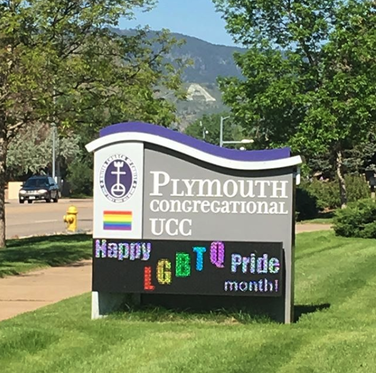 Even if the $60,000 we spent on the new signs changes one life, saves one life, opens one mind, transforms one heart… wasn’t it worth every single penny? Here are the reasons why the LGBTQ-Celebrating Movement and Visibility Matters More than Ever in 2019:
Do the rainbows come off? No, I’m sorry the rainbows don’t come off anymore. The Church doesn’t have the luxury of time to go in and out of celebrating all people anymore. This is the time in the institution of Church (more than ever before over these 2,000 plus years) to know who we are and to proclaim it boldly. While the Open and Affirming movement started as a Safe Space and a Sanctuary saving LGBTQ people from hateful churches and an uncertain world, it is now the LGBTQ Community arguably saving the Church from meaninglessness and theological daftness in an increasingly secular world. The Open and Affirming Church has given meaning to so many lives like mine. Now, we hope to be co-celebrants with you in a world seeking deeper meaning. Celebration, more than fear, is something we do well in the LGBTQ world. My prayer is that we can offer that joy to the Church and save it. Plymouth, thank you for being Open and Affirming and for making the bold move to Celebration. In Pride, The Rev. Jake Miles Joseph (or just Jake) Preferred Pronouns: He/him/ his AuthorThe Rev. Jake Miles Joseph ("just Jake"), Associate Minister, came to Plymouth in 2014 having served in the national setting of the UCC on the board of Justice & Witness Ministries, the Coalition for LGBT Concerns, and the Chairperson of the Council for Youth and Young Adult Ministries (CYYAM). Jake has a passion for ecumenical work and has worked in a wide variety of churches and traditions. Read more about him on our staff page. Last week, I joined with a group of Plymouth volunteers to go down to Sebring, Florida, to help with Hurricane Irma Habitat for Humanity rebuilding efforts. I was honored to accompany Plymouth volunteers dedicated to making a difference while grounded together in prayer and Spiritual Practices. What a gift and a blessing it is to be one of your members of the clergy! This was our first official team to go on an “International Build.” It was made possible by the Ministry Team leadership of Lynn Wartgow and Bruce Lieurance. As the last officially scheduled visiting volunteer group to go to this Central Florida location before the autumn (when it cools off again), we felt an increased sense of purpose and persistence. Painting and flooring a house built on a “floating foundation” in the sand was a new experience for our volunteers. More than anything, we learned about the ongoing need that sets into disaster impacted regions years after the initial rush of help comes. When the news changes subject and the national attention moves on from the initial impact of the storm, it is Habitat for Humanity that stays for the long haul…bringing with it the love of Christian community (open and accessible to all people) and missional vocation. At one point, everyone was taking turns looking deep in my eyes with sincerity and concern. You could say that this mission trip was eye opening. They say that the eyes are the widow to the soul, but it turns out it is also the way to detect a concussion! While getting in the van one morning, I aimed too high (carrying two cups of coffee, one in each hand) and hit my head hard on the door of the van. While there was no concussion after all, the world was spinning for a while that morning. The care I experienced touched me deeply and reminded me what church community is all about. Mission Trips, like this inaugural one with Habitat, both allow us to have a material impact in the world beyond our pews and town, but they also bring us closer together in care for one another. My ultimate reflection on this Mission Trip comes down to three phases: Home for All, Human Family, and Real Connection. That is why The Outreach and Mission Board and I hope that this trip to Sebring won’t be a stand-alone effort. We pray that it might be the catalyst that ignites our congregation sending more and more groups to go deeper in relationship with each other and the needs of others around God’s diverse world. Here are two additional reflections from Plymouth members who were on this Mission Trip for Adults: Lynn Wartgow, Habitat for Humanity Ministry Team Leader wrote: “I am so grateful for the group of eight wonderful people who joined me for the trip to Sebring. Everyone was incredibly positive, kind, timely, fun, hardworking and enthusiastic. I loved getting to know everyone and feel as if my extended family has just grown. Habitat building trips are a fabulous way to see new places, meet new people, provide a 'hand up' to a deserving family and have a bunch of fun at the same time.” And Vanessa Reed wrote the following, entitling it, Benefits of Working for Habitat: “At the age of 78, I have just gained a new family. No, I did not adopt or get married. I spent a week with eight people sharing, giving, and loving hard work. We traveled together to hot, humid Florida to work with Habitat for Humanity. Even though the work, a five-bedroom home for a mother of nine, was often repetitive with lots of walls to paint and floors to lay; there was nothing but laughter, sharing, hugs, and becoming aware of muscles we have not used in a long time. Hours of work to help this mother and her family become home owners and giving back to the community gave us all a deep feeling of satisfaction. We gained a sense of pride when the building manager said that he never expected us to complete so much work in such a short period of time. His praise sent us home to Fort Collins knowing we had made a difference in the lives of the people we did not know. Even more important than that, however, is that we created a new family with memories to never be forgotten.” With eyes wide open to the needs around us and the hope for transformation in and through community…let us be Church together. In Hope, Jake AuthorThe Rev. Jake Miles Joseph ("just Jake"), Associate Minister, came to Plymouth in 2014 having served in the national setting of the UCC on the board of Justice & Witness Ministries, the Coalition for LGBT Concerns, and the Chairperson of the Council for Youth and Young Adult Ministries (CYYAM). Jake has a passion for ecumenical work and has worked in a wide variety of churches and traditions. Read more about him on our staff page. 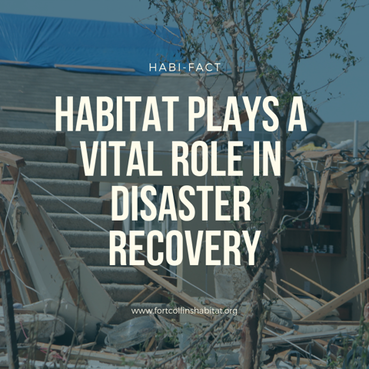 Dear Plymouth, “Home is where the heart is.” That saying has been around for so long that historians of language and idioms do not even know how long it has been in use, although there are written records dating back to Pliny the Elder (23-79 CE). When I hear this phase, I am brought back to childhood memories of Christmas mornings, Easter Egg hunts (mom hid the eggs so well we would keep finding them throughout the summer months), puppies, and lessons learned in time out. I spent a lot of time in time out. I am sure that many of you have your own stories of home that make this phrase resonate, but we all agree that home is the source of stability, nurture, and health in most of our lives. Public Health professionals universally agree on this point. For an increasing number of people, especially those in natural disaster zones, home is where the stress is. Home is where the uncertainty is. Home is where the instability is. Home was there, but then a hurricane, flood, or fire took it away. This is a place where we can help make a difference, as a church, and return heart to home. From April 28th through May 4th, for a week, Plymouth’s Outreach and Mission Board and our Habitat for Humanity Ministry Team have commissioned our first Adult Mission Trip since the end of our Navaho Mission Trips a half-decade ago. With Outreach and Mission Board member Lynn Wartgow leading, Plymouth volunteers Anne Wuerslin, Jeff Wartgow, Nancy and Bob Sturtevant, Vanessa Reed, Bruce Lieurance, and myself, along with friend of Plymouth Belinda Strickland, will be going to Sebring, Florida to help build houses for hurricane survivors—the same hurricane Plymouth responded to so generously with a special offering two years ago in the immediate aftermath. The fact that we first sent dollars and now are sending a real group of people to make a physical difference is a sign of healthy systems-changing mission rather than just charity. The Board of Outreach and Mission believes that bringing back organized Adult Mission Trip opportunities through Habitat for Humanity helps us fulfill the sending part of our mission as a church and to make lasting change while building relationships. After sending Lynn Wartgow to Minneapolis be trained as an official Habitat Mission Trip leader, we chose Sebring as our first mission opportunity because of our existing connection to that place and the need. If it goes well, there will be more similar trips every year, and we invite you all to consider going. Moreover, the board feels that having Adult Mission Trip opportunities brings us closer, as a board, to fully living out our mission in Fort Collins and the world to “send” people out of our comfort zone for hope and transformation. Plymouth’s Mission Statement: It is our mission to worship God and help make God’s realm visible in the lives of people, individually and collectively, especially as it is set forth in the life, teachings, death, and living presence of Jesus Christ. We do this by: Inviting, Transforming, and Sending. I asked some of those going on the trip to share why they felt called to be sent on this particular mission trip. Here are some of their responses in their own words: Jeff Wartgow: James, the very brother of none other than Jesus, must have possessed the genetic propensity for a desire to do good works. He certainly talked about its importance and is a good role model for us. I believe Habitat for Humanity is a reflection of how we can participate in expanding on that model, the realm of God's presence. I'm going to Sebring with our Outreach and Missions Habitat group to in some small way help rebuild shelter for a few of God's children so badly affected by hurricane Irma. Lynn Wartgow: There have been times in my early life where I experienced housing insecurity. I hope to help others avoid that painful experience. I love to build and I love to travel, so working with Habitat International (which includes domestic trips like this one) is a perfect fit for me. When you have the opportunity to work as a team doing any kind of mission work, you create "family." I'm looking forward to growing my family at Plymouth through this Habitat trip. Nancy Sturtevant: We feel that Habitat is an important program, and this is a good way to take Plymouth into the community. It allows us to volunteer as a couple for an important cause while getting the opportunity to become closer to other Plymouth members. Bob Sturtevant: Habitat is a great way to be a part of something bigger than ourselves. We can show people that we care through giving our time and energy to help them get back into a home after the devastating hurricane. We can use whatever house-building skills we may have to make a difference in the life of a family. Belinda Strickland: One of my favorite quotes comes from St. Francis, "Preach the gospel at all times, if necessary, use words." I believe the best way to show the love of Christ is through our actions of outreach. I have just retired, and this Habitat for Humanity trip is the first of my post-retirement efforts to increase my outreach efforts. Vanessa Reed, long-time Habitat worker: Not only do l enjoys getting my hands-on building tools but using my hands to give back to my community or to anyone who needs a helping hand. This is my passion. A special thank you to Lynn Wartgow for sensing God’s calling to this work of leadership and investing the time in the trainings and certifications that will make this possible, to Habitat for Humanity of Fort Collins Faith Relations Manager Erika Nossokoff for inspiring our potential to see what God will do next with our team, and to the whole Plymouth congregation for your prayerful support of this mission opportunity for adults. Throughout our days in Sebring, I will be sending a daily photo dispatch and written prayer on Social Media and in our email news about what is happening and where we are finding God and transformation in this work. I will also provide an “after” Reflection summery the first Tuesday in May about the mission trip. As we say in Habitat, “Let’s see what God will do!” In Hope and Habitat, Jake AuthorThe Rev. Jake Miles Joseph ("just Jake"), Associate Minister, came to Plymouth in 2014 having served in the national setting of the UCC on the board of Justice & Witness Ministries, the Coalition for LGBT Concerns, and the Chairperson of the Council for Youth and Young Adult Ministries (CYYAM). Jake has a passion for ecumenical work and has worked in a wide variety of churches and traditions. Read more about him on our staff page. Oscar Wilde wrote in an 1889 essay that, “Life imitates Art far more than Art imitates Life.” This famous quote speaks directly to a very active topic in the church world about the boundaries of Sacred Culture and Popular Culture. What is appropriate for worship or to be used as devotional material in the Church? Do the materials or music need to have Sacred Intention at the time of creation or is borrowing from one to the other okay? I want us to reflect on this and to offer a practical devotional practice this Lent to help us Go Deeper whenever a popular song on the radio or so called “secular” NPR story pulls at the Sacred parts of our Souls. First, let’s start with definitions. What is popular culture? Somehow, I still have all my textbooks from a class I took twelve years ago at Grinnell College called, “Nineteenth Century American Popular Culture!” In the book, Cultural Theory and Popular Culture, expert sociologists tell us, “culture [is] one of the two or three most complicated words in the English language…First, culture can be used to refer to a general process of intellectual, spiritual, and aesthetic development…A second use of the word culture might be to suggest a particular way of life, whether of a people, a period or group…Finally, culture can be used to refer to the works and practices of intellectual and especially artistic activity. In other words, culture here means the texts and practices whose principle function is to signify, to produce or to be the occasion for the production of meaning. Culture in this third definition is synonymous with what structuralists and post-structuralists call ‘signifying practices.’” The Church has traditionally liked to think of itself as part of the cohort of institutions protecting and operating within the first definition of culture—that of the academy and synonymous with high culture and authority. That is an unfortunate category for us to place ourselves. We should be the movement-makers. I would argue that we really need to be intentionally in the business and the artistic process of creating and aligning with Popular Culture—the third and more intimate definition with daily, lived, deep, embodied, real Christian living and practice. How are we still producing meaning? How are we working to be relevant and interesting to those whom have never thought Church was an option? How can we find God in the Secular and then make it Sacred? Church is in the business of Signifying Practices that make life and living better, more whole, and deeper! Even as a Mainline Minister, the greatest gift of growing-up Evangelical Christian that I cling to and still believe from the depths of my heart and lived experience is a lack of boundary between the Sacred and Secular parts of life. God is working in and through everything. “Prepare my heart,” O God, we pray, “and may I find you in every way.” This doesn’t mean that they like “the world,”, but it means that they use and incorporate popular culture into the church in order to transform it into church culture. My favorite “hymn” growing-up was, and this is not a joke, “I’m a Believer” by the Monkees. It was modified, of course, from the original love song to be about God. As Progressive Mainliners, we have amazing worship together on Sundays, and I do not suggest changing the authenticity of who we are and our tradition with that part of who we are and what we do here. If anything, it makes us cool and appealing to new generations that we have tradition and liturgy. Our worship is awesome and unique. We should, however, go deeper and find God in the popular culture songs that move our souls and hearts. An example, for me, is a song that has been on the radio recently and on the Charts called, “You’re Someone Else,” by the group Flora Cash. Here is the Practice of Transforming Popular Culture into Personal Faith Culture and it is radical: The lyrics speak to a sense of connection between people, seeing the beauty in others that they don’t always see themselves, and the need for authenticity in a time of superficiality. Songs like these have the power to save lives, to give hope, and to help people go deeper. If we listen with intention to popular culture songs, spend time meditating on the lyrics, and praying for those whom are most effected around the world by the music, the act of passively listening to music can become Spiritual Practice. Now, that is radical. (Here is the original video (art) produced by the band.) I saw the part of you That only when you're older you will see too You will see too I held the better cards But every stroke of luck has got a bleed through It's got a bleed through You held the balance of the time That only blindly I could read you But I could read you It's like you told me Go forward slowly It's not a race to the end Well you look like yourself But you're somebody else Only it ain't on the surface Well you talk like yourself No, I hear someone else though Now you're making me nervous You were the better part Of every bit of beating heart that I had Whatever I had I finally sat alone Pitch black flesh and bone Couldn't believe that you were gone Well you look like yourself But you're somebody else Only it ain't on the surface Well you talk like yourself No, I hear someone else though Now you're making me nervous Well you look like yourself But you're somebody else Only it ain't on the surface Well you talk like yourself No, I hear someone else though Now you're making me nervous Where are we? Where are we? Well you look like yourself But you're somebody else Only it ain't on the surface Well you talk like yourself No, I hear someone else though Now you're making me nervous Well you look like yourself But you're somebody else Only it ain't on the surface Well you talk like yourself No, I hear someone else though Now you're making me nervous I saw the part of you that only when you're older You will see too, you will see too What do you hear resonate with you? Loneliness, hope, potential, loss, isolation, liberation, God? Where is God working through this music or lyrics? Have you ever tried to be someone else? How did that go for you? How were you transformed? Are you still trying to be someone else—a hero, a villain, a parent, a celebrity? All of us have time to listen to the radio or NPR. Music is all around us now with Spotify and Pandora. Let’s turn it into a Spiritual Practice. At the end of a song, a segment, a story you hear pray for yourself or for someone else out there also listening to it or implicated in it. Pray for the hope to go on and to live in authenticity. Journal based on a favorite song. Draw a picture of how you feel. Turn the ordinary into the deeply extraordinary. This is the future of Christianity—we must again be in the camp of the signifying practices and cultural totems that really mean and feel and sing something to diverse people. “Well you look like yourself, but you are someone else… only it ain’t on the surface.” Let’s find ways to get beyond the surface of things together as a community of faith and go deeper again. In Authenticity Always, Jake AuthorThe Rev. Jake Miles Joseph ("just Jake"), Associate Minister, came to Plymouth in 2014 having served in the national setting of the UCC on the board of Justice & Witness Ministries, the Coalition for LGBT Concerns, and the Chairperson of the Council for Youth and Young Adult Ministries (CYYAM). Jake has a passion for ecumenical work and has worked in a wide variety of churches and traditions. Read more about him on our staff page. “You will seek me and find me, where you seek me with all your heart.” - Jeremiah 29: 13 “Can you find out the deep things of God? Can you find out the limit of the Almighty? Is it higher than heaven—what can you do? Deeper than Sheol—what can you do? Its measure is longer than the earth, and broader than the sea.” - Job 10: 7-9 Today is the State of Union and, by every measure, our sense of union across difference, politics, and even faith traditions, is under more extraordinary pressure than in recent memory. We find ourselves evaluating the national and even humanitarian “State of the Union” in terms that are anything but ordinary. It does make me ask myself if there is really greater disunion or if we are conditioned by our media outlets of choice (on either end) to look for and observe (celebrate?) discord more than the love that still unites people across difference in ever more extraordinary ways? Just a thought… Lucky for us, we are facing these extraordinary times with the safety and security of a Christian faith tradition grounded first and foremost in the idea of eternal hope—both for this Realm and the next. We are, if we do Christianity right, embedded in a culture and even a Savior of hope. Moreover, somewhat ironically, this liturgical season between Epiphany (anything but normal) and Lent (certainly strange) is actually a short month of “Ordinary Time” in the midst of liturgical seasons of great instability. This is, whatever truth we find in it, technically Ordinary Time in the Church Year. As we all grapple to find and remember our collective Baptismal Call to Hope and to seeking God in all things and in every time, I would like to invite you to join me in a new practice. Our Baptisms call us to look forward in hope to a better day rather than backwards towards how it was before our current perceived state of disunion. Hear me on this: Things will never again be the way they were before or how they were when you were a kid, so our greatest hope lies in God and in uncovering the immense potential of a New Ordinary Time. Hope isn’t a thing of the past. Hope is the way of seeing the gifts of now. It is trusting that God can make good come from even the worst imaginable and then acting and working to do our part to make that envisioned future of union possible… come tomorrow or come three lifetimes from now. Here is a short tale I want to tell from my Canadian history that is a small floral example of what I mean. All of our families bring stories with them from the places we were before. My maternal family happens to be Canadian and has a trove of stories similar to but nuanced from our American narratives. Here is one of my favorites that, while simple, always gives me hope in the face of global disunion: If you ever visit the stately Canadian Capitol City of Ottawa, you will be surrounded by a deep sense of history, civic pride, and beautiful grounds. If you visit in the winter, you will see that the canals throughout the city are used as linear ice rinks to form a public transit infrastructure for ice-skater commuting to class or to work. It gives being late for work and speed skating practice a nice overlap! If you visit in the early summer, when the canals are melted and form more of a calming backdrop, you will be surrounded by the largest tulip gardens in the world. Tulips, tulips everywhere in every color! It is like Pella or Orange City, Iowa or Holland, Michigan multiplied by the tens of thousands. “Where did these Tulips come from,” you may well wonder, “and why Ottawa?” As the story goes, on May 12, 1940, when the tulips were still blooming, the future Queen Juliana of the Netherlands boarded a ship for Ottawa for safe keeping during the ravages of World War II. In Canada, she met an unmatched sense of hospitality, care, and true national mutuality. The Canadian government even went to the lengths to declare the hospital room where Queen Juliana gave birth to Princess Margriet to be official Dutch Territory so as to make the birth completely Dutch. In 1945, when she finally got home, Queen Juliana sent 100,000 bulbs to the City of Ottawa and then another 20,000 plus bulbs to the hospital that had shown such understanding and went to such lengths during the birth of Margriet. Every year, for the rest of her life, Queen Juliana sent tulip bulbs over the North Atlantic to the Ottawa as a sign of union and connection. That is the story, as I have heard it, of the Tulips of Ottawa. Why does that matter today? The New Ordinary, after a time of great darkness and international disunion like we have never seen before in history, still has signs of flowers, or relationship, and of hope. The uncertainty and disunion in the world today cannot even begin to be measured against 1940, but still the sense of despondence and pessimism, particularly in the Mainline Progressive Church, is concerning. We cannot start over from 1957.* We can only start over in hope from today. This is our New Ordinary Time with which we have to work and create anew. At the end of WWII, the people of the Netherlands and Canada couldn’t wish away the pain and the loss, but they could see what God was leading them to in a “new ordinary” with new potential for good, for connection, and for tulips. This spring and summer in Ottawa Canada, and probably forever into the future even after the origin story is forgotten by human memory, tulips will bloom along the canals and in the parks and every public place. The Realm with which we have to work and within which we are called by our Baptisms to plant bulbs of hope will never again be 1957, 1992, 2007, or even yesterday. The only place where we can plant flowers of union, is today. It is your Baptismal Covenant to look for any ground that might be ready for flowers of union between people even in unexpected times. In Hope and Tulips, Jake *1957 is the date of creation of the United Church of Christ AuthorThe Rev. Jake Miles Joseph ("just Jake"), Associate Minister, came to Plymouth in 2014 having served in the national setting of the UCC on the board of Justice & Witness Ministries, the Coalition for LGBT Concerns, and the Chairperson of the Council for Youth and Young Adult Ministries (CYYAM). Jake has a passion for ecumenical work and has worked in a wide variety of churches and traditions. Read more about him on our staff page. “The greatest risk in life is not taking one!” -Anonymous Proverbs 3:5 “Trust in the Lord with all your heart, and do not lean on your own understanding.” Matthew 14: 29 “He said, ‘Come.’ So Peter got out of the boat and walked on the water and came to Jesus.” For those of us who sometimes struggle with the title and history of the name “Christian,” I might suggest that the coolest rebranding we could do as an institution would be to call ourselves Water Walkers! Can you imagine the logos we could develop? In all seriousness, Scripture is all about risk-taking and learning to reinvent ourselves. From Genesis to Proverbs to Matthew, we find sayings and stories that remind us that life changes, God is with us, and we have to take risks to make a difference. Life is about learning to walk on the water… and learning to swim with joy when it just doesn’t work out the first time. SPLASH! At my recent younger clergy leadership cohort (The Next Generation Leadership Initiative) last week, we focused on the idea of adaptive challenge and adaptive leadership. One of the first lessons The Pension Boards wanted to relate to us before we could get into case studies was the difference between Authority and Leadership. One of my cohort colleagues, The Rev. Kit Novotny, from First Congregational in Berkeley summarized our learnings this way at the end of the week: “Authority is about stabilizing, protecting the purpose of an organization/group, holding together. but LEADERSHIP is about opening up! De-stabilizing, disorienting. Creating disequilibrium. Expanding. Adaptive work is the problem for which we don’t have the solution. Instead, we ourselves have to change. We have to learn our way to the solution.” In your life, in your relationships, in your spirituality…are you currently trying to be a leader or an authority? What are the things you are learning through? What experiments are you running to try to come to new solutions or ways of being? Our religion is built on a tradition of stories about radical, adaptive experiments like walking on water. We have nothing to fear. We certainly should be hard to embarrass given the funny stories in our tradition and Scripture! We are the water walkers… and sometimes jubilant swimmers. It is Christianity that should inspire us to take risks rather than inspiring us to worry and stress. I pray for all of us, with or without New Year’s Resolutions, that we all resolve to be leaders throughout our different contexts in these times of the unknown, unprecedented, and yet still emerging change. Turns out, the greatest risk is forgetting that risk is our religion. Splish Splash, The Rev. Jake Miles Joseph (or just Jake) AuthorThe Rev. Jake Miles Joseph ("just Jake"), Associate Minister, came to Plymouth in 2014 having served in the national setting of the UCC on the board of Justice & Witness Ministries, the Coalition for LGBT Concerns, and the Chairperson of the Council for Youth and Young Adult Ministries (CYYAM). Jake has a passion for ecumenical work and has worked in a wide variety of churches and traditions. Read more about him on our staff page. At around 10:00 a.m., I was on my way back to Fort Collins from a very early morning pastoral care visit to one of our members at the University of Colorado Hospital in Aurora, when I received a phone call from a friend. Using my hands-free calling (safe driving) speakerphone, I took the call. One can never be too careful on I-270! “Happy Thanksgiving! I hope you are Gerhard have good plans for food!” - Friend “Yes, we do! When I get home, later, I should double check that everyone knows what they are bringing.” - Me “Where are you now? It sounds like you are on the highway?” - Friend “Yes, I am just returning from visiting one of my members at a hospital down in the Denver area.” - Me …silence… “Why? What good does that do? You aren’t a doctor!” - Friend “Because… it is just what we do.” - Me I have reflected on my response since: “It is just what we do.” To those outside of the church, much of what we do as church community must seem very odd or otherworldly: visiting each other in the hospital, making blankets/shawls for blessing, calling on our friends on the anniversaries of loss, and even driving to Denver or beyond to just say “hello,” “God loves you,” and, “we are here.” It is just what we do indeed! Let us all support each other in this season of light, this season of waiting, this delicate season of unfolding grace. It is just what we do…after all. In Light, Jake P.S. I stumbled upon this reflection from 2016 about those experiencing Christmastime Blues. Anna and I have made it available again for reading and listening. I hope it might be a small blessing. AuthorThe Rev. Jake Miles Joseph ("just Jake"), Associate Minister, came to Plymouth in 2014 having served in the national setting of the UCC on the board of Justice & Witness Ministries, the Coalition for LGBT Concerns, and the Chairperson of the Council for Youth and Young Adult Ministries (CYYAM). Jake has a passion for ecumenical work and has worked in a wide variety of churches and traditions. Read more about him on our staff page. The smell of autumn was in the air rolling down from the foothills in the distance. The sound of the now stiff and dry leaves clinging to branches and falling to the sidewalk echoed in my ears. It was a perfect Fort Collins blue sky, fresh, October Friday afternoon. You know the kind of day I am talking about? It could not have been a more beautiful day. This was about a month ago, and I was doing what I had done every clergy-day-off (my Fridays) since April—walking for a campaign. I love having conversations with strangers about a political candidate I believe in. Regardless of where we all fall on the political spectrum, there is something wonderful about celebrating our democracy and beliefs by walking and meeting with other people. As a card-carrying extravert, there is nothing I love more than an election year autumnal canvas on a beautiful day. It combines four things I love: policy, speaking with new strangers, touring neighborhoods, and walking outside! I am giddy even typing about it. I do pray for change in the world, but canvassing has been my spiritual practice to make good on my part of the deal. While ministers do not bring politics to work, we can and should speak more about the importance of being involved in the process. All of this walking has paid off—20 lbs. lost, and three worn out pairs of shoes later, I feel like I am making a difference. Who says politics isn’t good for you!? Those soles were good for my soul. :) I have been a local walker in Fort Collins since well before I could even vote. Canvassing in our beautiful community is an extension of my theological understanding of what I believe we are called to do as Christians. We are called to get involved and work for the greater good. Something, however, is wrong. Something is gravely wrong with our community this year. Something is wrong with Fort Collins. On that beautiful day, I greeted a man in his front yard who was on my walking list with a “Good Morning, Sir, I’m walking today for x who is running for y. How are you this beautiful day?” His response was to yell in my face “I hope you go to hell!” He held his rake like a weapon. I stood in shock before trying to regain my perennial smile and continue walking. In my entire life, nobody has ever said that to me; especially, with such sincere and earnest hope that it would actually come true. He really wanted me to go to hell simply for walking for my candidate! In that moment, I was overcome with one of the greatest feelings of sadness and clarity I have ever experienced. Of course, he never would have known that he said that to a minister. In retrospect, I wonder what kind of anger could stoke such a verbally violent response to a stranger’s friendly greeting even if he didn’t like my candidate. What kind of hate is afoot in our city? It scares me. It worries me. It turns me to prayer. Sadness. I have had doors slammed and hate speech uttered. I have been threatened this year. In all of my years walking, never have I experienced the feeling that even our fair city is coming apart at the social, communal, collective seams. Beyond the façade of inclusion, bike trails, and tidy parks, something is very wrong here…and probably everywhere. In all of my years of campaigning, never have I seen anything like this. As a local minister, more than as a canvasser, this absolutely breaks my heart. Something is wrong with my beloved Fort Collins and Northern Colorado. I do, of course, hope that you vote today (if you haven’t already). Regardless of your political leanings, I really do hope that you vote. And I hope in April, during the upcoming Municipal Elections, that you get involved and care. Be nice to canvassers, even if you don’t like their candidates. More than anything, I pray that you don’t give up on love. This is my business. It is the business of the Church. It is the business of rediscovering fundamental ethics. Lastly, I pray that the neighbor whose hatred was so strong receives abundant blessing in this coming year. I pray that God will bless him and his family. I pray with sincere hope that he finds God’s peace. I don’t know him, but as my neighbor in this city, I hope whatever fear and anger would make him act that way will be no more. I pray for his peace, for his peace is my peace as his neighbor. We are tied together now. It is not the business of the Church to get involved in politics, but it is our business to find better ways of treating people. Regardless of the outcome of the midterm election, we have work to do to fix Fort Collins, Colorado, and our country. If we start treating our daily lives and disagreements like political television attack advertising, then maybe every faith community in Fort Collins needs to return to the fundamentals of love of neighbor. Please don’t hope, no matter how much you may disagree with them, that your political opposites go to hell. That is a sure way to make sure that none of us ever finds peace. In Humility, The Rev. Jake Miles Joseph (or just Jake) AuthorThe Rev. Jake Miles Joseph ("just Jake"), Associate Minister, came to Plymouth in 2014 having served in the national setting of the UCC on the board of Justice & Witness Ministries, the Coalition for LGBT Concerns, and the Chairperson of the Council for Youth and Young Adult Ministries (CYYAM). Jake has a passion for ecumenical work and has worked in a wide variety of churches and traditions. Read more about him on our staff page. Dear Plymouth, October is a liminal time between summer heat and winter cold, between rain and snow, between one year transitioning to the next, and for some of us from summer sports to winter sports. I love October. Sweaters come down from the attic. The skies get waxed and edged. Apple Cider and pumpkins abound. Corn and squash are on most menus! There is so much to celebrate! While all of that is good and well, for clergy it is a particularly exciting month. Best of all for ministers, for one month of the year, we aren’t the only ones willing to talk about death, transitions, and bereavement! For this one month, conversations about death and dying are all around us in nature, in life, and even (while often distorted) in popular culture. While All Saints or Totenfest in early November is a formal Christian Holiday of recognizing our departed loved ones, Halloween is traditionally not part of the liturgical year. This is largely for good reason, but perhaps there is still something we can learn from it. While I love October, I mostly just hold my breath for Halloween to be over. I hate the constant gore, violence, and especially the candy corn in the supermarket and on TV. Additionally, I have to confess to never having sat through an entire horror movie in my life with my eyes open or without covering my ears. I am that person who won’t sleep well for weeks after. What I like about Halloween, however, is that it is the one time of the year, while exaggerated, when most Americans of all religions and no religion think collectively about death and life. It is a time when we all have the opportunity to claim, in contrast to all of the gore and violence, how we want to live life and to be remembered. October is a beautiful, liminal month of the changing of the seasons, falling of summer leaves, and the coming of winter winds. It is also a time when we have the chance, whether we want to or not, to reflect on the meaning of our lives. What will be left when we are gone? How will we be remembered? Do I have a living will? How am I honoring my ancestors and dearly departed? When is the last time I visited or tended my grandfather’s grave? Tending graves or sacred places of memory is a deeply important and forgotten Christian ritual that I advocate reclaiming. While there is much gore, violence, and bad food to ignore (especially candy corn) in October and in Halloween, there is also the chance to claim the good parts of this cultural holiday. As we look for Halloween costumes and decorations, let us also reflect on what costumes we are already wearing in our daily lives. As we share candy and apple cider with friends and strangers, may we also think of ways to feed the world with nutrition (not just sugar) and hope throughout the year. Most of all, while we are inundated with the cultural fear of death—may we also claim our Christian hope that there is yet more beauty to come. Happy Halloween, Just Jake (or The Rev. Jake Miles Joseph) AuthorThe Rev. Jake Miles Joseph ("just Jake"), Associate Minister, came to Plymouth in 2014 having served in the national setting of the UCC on the board of Justice & Witness Ministries, the Coalition for LGBT Concerns, and the Chairperson of the Council for Youth and Young Adult Ministries (CYYAM). Jake has a passion for ecumenical work and has worked in a wide variety of churches and traditions. Read more about him on our staff page. 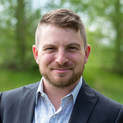 “To be, or not to be—that is the question: Whether ‘tis nobler in the mind to suffer The slings are arrows of outrageous fortune Or to take arms against a sea of troubles And by opposing end them…” Hamlet (III.I. 56-60) How can I forget being made to memorize this entire famous monologue of Hamlet as part of some test of will, rite of passage in junior high school? Sometimes, these sorts of memorization exercises of classic literature are actually useful in life and we find ourselves quoting them at surprising times. "To be or not to be…" For example, when thinking about the process of unleashing the database user portals for congregational use, we all ask ourselves… “To be or not to be… part of the directory online portal system?” That is the question! September 2018 marks a new phase of congregational access and transparency in the history of the church: the launch of user-portals to have up-to-the minute directory and giving information at your fingertips. In a time when the transparency and connection in the wider Church are a big issue, it is right and good for us to allow this input and access to the database. The reality is that we are all already part of the database. Just as churches have kept records for eons on paper, all churches now do that digitally. Not only is this a safer way to keep information but it is more efficient, and allows us to implement data-driven solutions. Plymouth has had a database in some form or another for almost 20 years now. This is to say that asking members to create log-ins and learn to use an online portal to view their own information, update pictures, and access photo directories online (and the option of an app for their phones), isn’t the same as opting in or out of the database. We are all in the database whether we decide to use the portal or not; but now we are offering a new way to stay connected and to engage and manage your own directory information. What Leadership Council and the Database Task Force are asking is that you claim your directory portal and make corrections to your information if needed. You can do this on your own (instructions here) or with the help of our skilled volunteers in the Fellowship Hall after every worship service for the rest of the month of September. Uploading a good picture would also be a blessing for all of us. (For example, it was a problem that we didn’t have clear, current pictures of everyone during our last sabbatical interim.) To be or not to be… that is not the question! We are all already in the database. The question is: to be connected better or to keep status quo? We also have a new privacy and database policy developed by the Task Force for the Database and approved by Leadership Council. Access and review it by clicking here for a PDF. We think we are one of the only churches in the country with such a detailed, responsible, and comprehensive policy. Please consider taking the time to log into the portal, download the app if you use the directory regularly, and update your information. Know that our help table volunteers for the rest of the month of September* are here to help and are trained to answer questions or walk you through the process. (Again, instructions for self-guided setup are here.) *The Directory Help Table will be staffed on Sundays September 9-30, between 10 and 11 a.m., noon to 1 p.m, and 7 to 7:30 p.m. in the Fellowship Hall. To be or not to be? I think Plymouth always chooses to be more and better connected. Sincerely in Shakespearian Musings, The Rev. Jake Miles Joseph (or just Jake) P.S. Thank you to those who served with me on the Database Task Force: Chair Daryl Knoblock, Anna Broskie (IT/Communications Coord.), Bill Tucker, Sarah Parmenter, and Keith Schulz. AuthorThe Rev. Jake Miles Joseph ("just Jake"), Associate Minister, came to Plymouth in 2014 having served in the national setting of the UCC on the board of Justice & Witness Ministries, the Coalition for LGBT Concerns, and the Chairperson of the Council for Youth and Young Adult Ministries (CYYAM). Jake has a passion for ecumenical work and has worked in a wide variety of churches and traditions. Read more about him on our staff page. We the people... We the humans. We humanity. We the child. We the parents. We the strong. We the advocate. You. Me. Them. WE! We who are mortal, temporary, transient on this fragile planet: We, God, hold these truths to be self-evident [but maybe not as self-evident to everyone as we had assumed...all these 242 years] that all people are created equal, enabled, beloved, touched by a hint of the divine spark, maintained by a universal grace in equality of person, status, and importance. We are intrinsically and deeply endowed, God, by you, Almighty Love that Drives the Stars and Forms Planets, with certain unalienable, irrevocable, cannot be questioned prerogatives! Rights. Respect. Dignity. Freedoms! God, you give us Life. May it not be taken away by someone with a gun. May it not be taken away by incarceration or confinement. May none revoke what you have given by birth. God, you give us Liberty. May we learn to work for the freedom and liberation of all. May none live in fear of unjust imprisonment. May none fear for the liberty of their children or children's children. God, you give us the peace and hope to pursue happiness. May you protect the happiness of LGBTQ people and the legal safety of our marriages. May you preserve the happiness of those who are immigrants hoping for a better future. May you protect the pursuit of happiness in the fundamentals of community togetherness. Help us, O Love, help us to remember how to pursue happiness as a country. Happiness not dominance. Happiness not pain pills. Happiness not guns. Happiness not power over others. Happiness not war. God who endowed us with every hope, every strength, and capacity to love, renew in us a declaration of independence from the narratives of pain, trends of oppression, purveyors of scarcity, salespeople of fear that seek to do harm to your Realm of Everlasting peace in heaven as it is on earth. We pray for independence from daily fear and ask for your strength to give us words of love and courage for this time. We thank you for this beautiful country filled with kind and diverse people. We do love our neighbors, generally, and try to treat them well. We thank you for a Constitution that protects our freedoms and our optimism for the future and which separates powers. We the people, God, give you thanks and ask for your protection, your wisdom, and your love for all people created equal in liberty, life, and all seeking and encountering happiness. We the people have hope still. Amen. AuthorThe Rev. Jake Miles Joseph ("just Jake"), Associate Minister, came to Plymouth in 2014 having served in the national setting of the UCC on the board of Justice & Witness Ministries, the Coalition for LGBT Concerns, and the Chairperson of the Council for Youth and Young Adult Ministries (CYYAM). Jake has a passion for ecumenical work and has worked in a wide variety of churches and traditions. Read more about him on our staff page. 6/5/2018 Open Letter to the UCC: The LGBTQ Right to Distrust God (Reflection from the Rev. Jake Joseph)Read Now 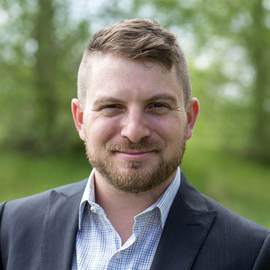 For my Beloved United Church of Christ, I have written in my ordination paper, essays in seminary, and many other forums of my love for this denomination as an out-LGBTQ clergyperson and Christian. This Pride Month 2018, however, it is time to issue a loving challenge. Twenty-five percent of congregations Open and Affirming, thirty-three years of the Open and Affirming (ONA) Statement, and many other signs and sacrifices for the LGBTQ community in the National Setting and Local Settings of the UCC (including countless congregational and individual member departures) are a great start. Thank you, UCC, for your dedication, help, and sacrifice. I know how hard your work for LGBTQ people has been: sometimes splitting congregations, families, friendships, and decimating church budgets. Likewise, I know sometimes it has brought new life to congregations in need of new inclusive vision, members, or hope. I look for more examples of the latter as we move forward as a faith tradition into an uncertain future. That said, I want to address an attitude in the UCC: shock when LGBTQ people don’t understand that this denomination is a safe space. Moreover, I have witnessed straight-privileged anger, indignation, and desperate need for gratitude. Open and Affirming Churches want gratitude from the LGBTQ community, which is something we really cannot emotionally provide. In order to be theologically healthy and authentic as an Open and Affirming Movement, we need to first affirm the following difficult reality: The LGBTQ community does not owe the United Church of Christ anything in return for it's theologically driven move towards inclusion—even if that has meant great sacrifices. We are delighted to be included in pews, pulpits, pastorates, and pensions, but the wider LGBTQ family’s hurt and continued endangerment (especially with the current political winds) is greater than anything the UCC alone can heal, apologize for, or save us from. Additionally, LGBTQ spiritual gifts, theology, and radically unique perspective on liberation didn’t end with marriage equality. Marriage Equality is not synonymous with LGBTQ Liberation. There is so much more wisdom capacity and value yet untapped by the UCC from our diverse queer perspectives and fabulous presence. The UCC’s openness is deeply appreciated by those of us in the LGBTQ community whom have chosen to do the HARD WORK (daily, complicated, painful) of reclaiming and living as religious Christians, but It doesn’t mean that gay and queer people owe you, the institution, our love and devotion. ONA isn’t transactional in that way. The popular attitude that the UCC is the gift that the LGBTQ community is looking for but hasn't found yet must be tempered with an understanding that church PTSD is real even for those who have never been inside a church. As an example, I have never been inside of a haunted house attraction or a haunted corn maze, but I know that it would NOT be a safe, fun, or good experience for me. I know that from my outside experience with horror movies, people jumping at me, and even being alone at Plymouth at night (yes, this is a scary building when empty). Every experience I have had informs me to stay away from haunted houses. Likewise, even for LGBTQ people who have never had a direct experience with church (not even to mention the countless who have been emotionally abused and damaged by our wider Christian family), convincing us LGBTQ people that churches are safe and trustworthy is a multi-generational, long-term effort that must be rooted in meaningful mission and ministry rather than money and marketing. I have yet, sticking with my above example, to be convinced that a haunted house would result in anything other than a heart attack and my own early demise on the spot! In short, we are a hard sell. Having an out minister doesn’t cure that fear or fulfill your ONA promise. Yes, I can speak with my friends and sometimes open doors of understanding, but I am not called to evangelize the LGBTQ community. Hiring me or my predecessor didn’t mean a cure to any fear others have. If anything, it just means that Gerhard and I have a lot of trouble finding friends who understand me or want to be around us, and I never ever blame anyone for this. I knew what I was signing-up for. It is a sacrifice I have been willing to make. It does mean that I understand and respect the healthy distance people who have been hurt need to keep from religion—even if that means keeping me as out gay clergyperson at a distance too. It is just too risky, confusing, or painful to befriend even a gay minister. The LGBTQ community still has the right to distrust the God of Christianity after 2,000 years of oppression and continued alienation like yesterday. The UCC must continue in our Open and Affirming Journey, and that means understanding that what we have begun in reconciliation, love, and radical inclusion is only the beginning of what could take generations of Queer acceptance to heal. We do this work of openness not for ourselves, our full pews, or our budgets, but we do it for God and for Jesus the Christ whose love we are called to embody. Yesterday, the Supreme Court ruled that a local Colorado cake baker could deny a gay couple a wedding cake because of his belief in God and “religious liberty.” For that decision to come down in June is particularly difficult. June is LGBTQ Pride Month when we celebrate our liberation from straight patriarchy beginning with the Stonewall Riots in NYC in 1969, so this decision is jarring for many. It is days like yesterday that I find it incredibly difficult to justify the Church, God, and religion to my LGBTQ community as a Christian Minister of the Gospel. It is days like yesterday when responses, “sorry,” “we promise we aren’t all like that,” “you should try the UCC,” “don’t lump us in with those Christians,” or even, “we are just as angry as you and God loves you… really we promise…” just don’t work. It breaks my heart to watch my Facebook feed crumble in pain, alienation, and anger after yesterday’s verdict. It hurts even more to have to admit that my ministry and my Facebook posts can’t fix it and neither can the UCC alone within one generation. It isn’t really about the damn cake. We, LGBTQ individuals and our straight allies alike, all know that we make better, tastier, more creative cakes anyway when it comes right down to it, right? Right? You know it’s true. It is really about systemic pain of rejection, of family alienation, and discrimination happening when trying to do something as simple as ordering a giant, glorified pastry for a party with a loved one! For God’s sake… it isn’t about the cake. It is about everything else that matters. There is hope yet, friends, in grace! This is a word many of us only know if we have ventured into Wesleyan theological territory like I did for seminary, but it can mean so much right now for us in the United Church of Christ. Grace means more than changing ourselves, changing our words, opening our doors and then assuming that we no longer carry cultural pain. It means coming to terms with our own privilege and understanding the weight of the history of this wider institution outside of our control. Grace also means understanding when our invitation of Open and Affirming welcome isn’t met with enthusiastic embrace. The turning of the Titanic takes great time. Grace is the humility to know that the doors may have to remain open for a very longtime before anyone feels safe enough to trust this institution. Love is loving those who never will enter our churches and never become pledging units because we are called by God Almighty to do so. Becoming ONA isn’t a marketing scheme to fill pews, it is a theological statement on the level of theodicy! Grace is a grace for ourselves when we don’t get it right. Grace is love for others when they aren’t quite ready to accept our invitation to a loving community as we experience and know it. Grace is what God holds us all in at this time of transformation for the Open and Affirming Movement. Grace is what happens when we see that becoming Open and Affirming is more than a marketing statement. When taken seriously, it is a part of a wider systematic theology of inclusion that has the power to transform all of us into better people: all of us together…even or especially those whom we now accept will never join or visit the church. Yours in Love and Pride, The Rev. Jake Miles Joseph (or just Jake) Associate Minister Plymouth Congregational UCC, Fort Collins, CO. AuthorThe Rev. Jake Miles Joseph ("just Jake"), Associate Minister, came to Plymouth in 2014 having served in the national setting of the UCC on the board of Justice & Witness Ministries, the Coalition for LGBT Concerns, and the Chairperson of the Council for Youth and Young Adult Ministries (CYYAM). Jake has a passion for ecumenical work and has worked in a wide variety of churches and traditions. Read more about him on our staff page. 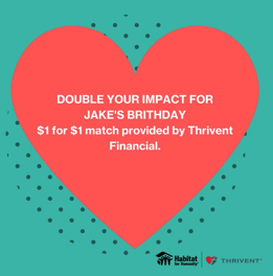 Dear Plymouth Family, I've been thinking a lot about the time we have in life and how we use it recently. Here is what I would like to share along with an invitation (so if you don't feel like reading more... no judgement and just skip to the end): The word “hobby” comes from an Anglo-Latin word “hobi”—a 1400s nickname for a small, active horse. As time progressed, the word evolved to refer to a hobbyhorse, which was a children’s toy rocking horse or wooden figure of a horse. The word hobby evolved from that wooden horse toy to today where it generally means an activity that doesn’t go anywhere or is only for amusement. [1] Hobbies are different for different people. Some people rock climb, some go fly fishing, some do yoga, some hike, bike, swim, knit, gossip, or gossip while knitting or hiking (that is probably all of us)! But when people ask me what my “hobby” is, I have to reply as follows: “If by hobby you mean the activity I do with all my spare time and to which I dedicate vacation days and passion and for which I do not get paid, then my hobby is affordable housing advocacy.” Certainly makes me sound like I am riding a high horse, doesn’t it? Words have a way of coming full circle. While certainly not immobile or only for amusement sake, over the past couple of years my volunteerism, board involvement, and spare time have all been focused into a passion for this much overlooked area of social justice advocacy. It isn’t overlooked because people don’t care, but rather because it is immensely complicated! It is also particularly nuanced because it is not easily categorized as a liberal or conservative interest. While advocating for tax credits and private activity bonds sounds like a "conservative" endeavor, it becomes an immensely important and "progressive" task when talking about them as essential funding mechanisms for developing affordable housing. Some (including my husband) might call it my “hobby,” but I now see this side of my life as a part of my sense of call. Affordable housing in its many forms and programs is hard work to advocate for because it requires so much learning: vouchers, water tap fee structures, state and federal tax credits, financing, zoning, the difference between non-profit/ for-profit/ housing authority development, LCCC, LCC, partnerships, Fair Housing laws, proformas, gap financing, CDBG, HOME, board development, debt coverage ratios, fundraising… etc., etc. Sounds fun, huh? It actually is fascinating. Just like learning to fish or rock climb, it takes time, vocabulary, and dedication to acronyms. Late last month, I used some of my vacation time to go to Washington, D.C. with the National Commissioners’ Committee of NAHRO[2]and other commissioners from Northern Colorado's Housing Catalyst to advocate on Capitol Hill for affordable housing and public housing authorities, their funding, and policy needs. I am careful to keep my work hours, time, and continuing education separate from my affordable housing advocacy--and using personal vacation days to attend an advocacy conference and meetings with legislators on behalf of the "least of these," for those who need supportive services, for the homeless, for the housing insecure, for the dearth of affordably priced and attainable housing in our country is the best and highest use of vacation I can imagine. I do come home refreshed from this use of vacation days because I believe this advocacy matters and am refreshed by being around others who care about the issue. What are passion areas or interests outside of what you do for a paycheck? Call them hobbies or advocacy or passions… whatever they are, I encourage you to nurture them. You never know when something might emerge that is fundamentally part of what you know you are meant to be doing. God can emerge in unexpected and important ways from these hobbies we find in life outside of work. One of my uncles found that his love of surfing in North Carolina translated into amazing work as a mentor for local youth. You never know what your hobbies might become when empowered with an open mind and heart. Additionally, I want to underscore how easy it is to advocate for issues you care about and how important speaking from a faith perspective can be when speaking about funding priorities. If as Progressive Christians we can learn to speak from our faith, we can have an incredible impact. I have found that my voice as a minister is valuable in the affordable housing conversation and welcomed in those dialogues. Where is God calling you to use your voice? Lastly, as part of this sense of call to affordable housing advocacy, I have been able to turn my 30th birthday into a gift for Habitat! On Wednesday, June 27th from 6 PM to 9 PM, you are welcome to come celebrate my 30th birthday!* Click here to view the Facebook event. Comet Chicken in Old Town and Fort Collins Habitat for Humanity are throwing my birthday party and donating 20% of proceeds (all food and drink) to Habitat for Humanity of Fort Collins that evening. In lieu of birthday gifts, additional donations to Habitat are welcome but are not necessary. Both the 20% of revenue and all donations that night will me matched $1 for $1 by Thrivent Financial! This all started with a question: "I wonder if even my birthday can be a gift to affordable housing?" Then I just stood back and watched God and community do the rest. When you find that hobby or purpose that helps make your day complete, always remember to declare, as my friend Erika, the faith community coordinator for Habitat does, “Let’s see what God will do!” Associate Minister and Aspiring Houser, The Rev. Jake Miles Joseph (or just Jake) [1]https://www.etymonline.com/word/hobby [2] http://www.nahro.org/about-nahro AuthorThe Rev. Jake Miles Joseph ("just Jake"), Associate Minister, came to Plymouth in 2014 having served in the national setting of the UCC on the board of Justice & Witness Ministries, the Coalition for LGBT Concerns, and the Chairperson of the Council for Youth and Young Adult Ministries (CYYAM). Jake has a passion for ecumenical work and has worked in a wide variety of churches and traditions. Read more about him on our staff page. |
Details
|
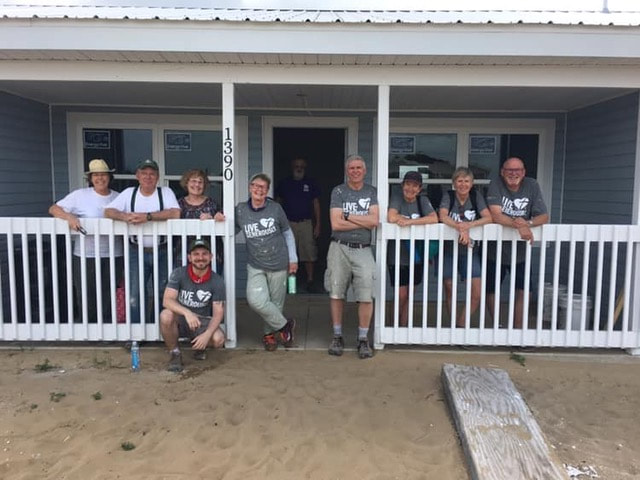
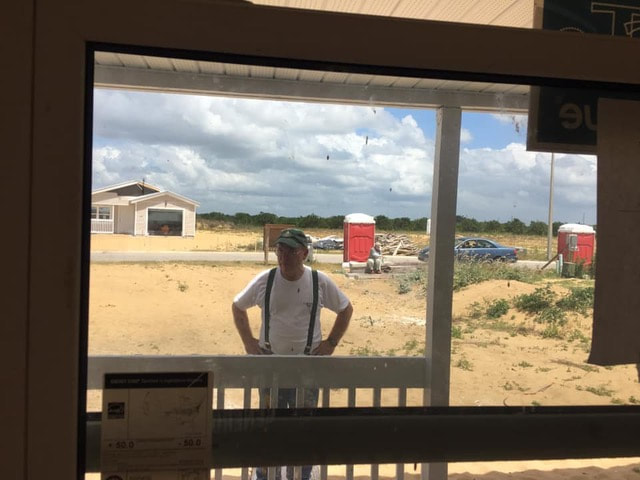
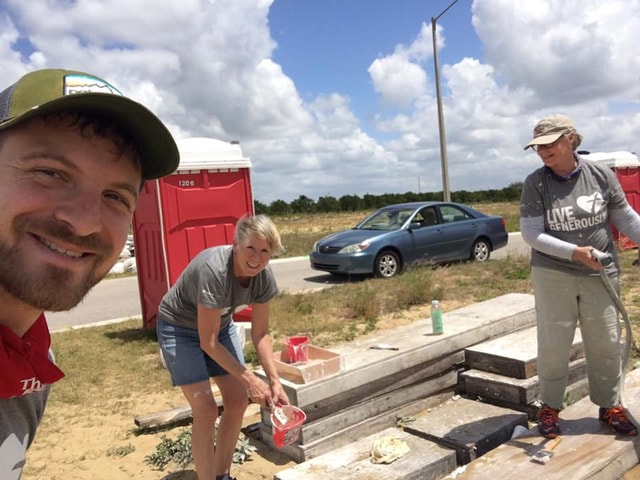
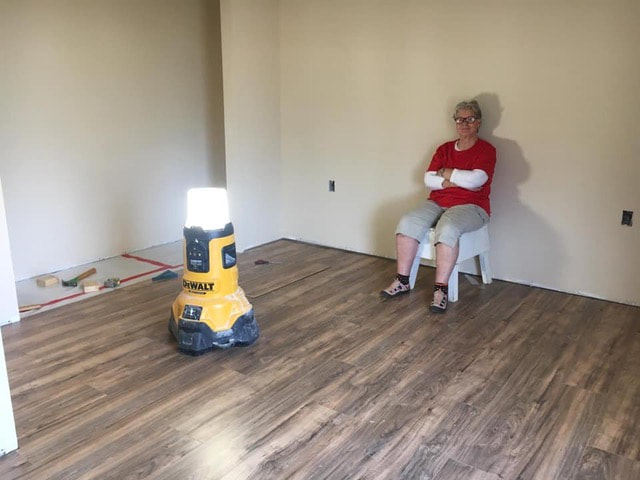
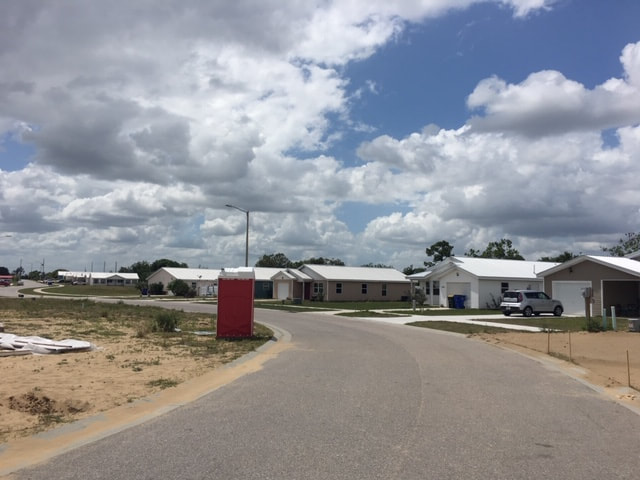
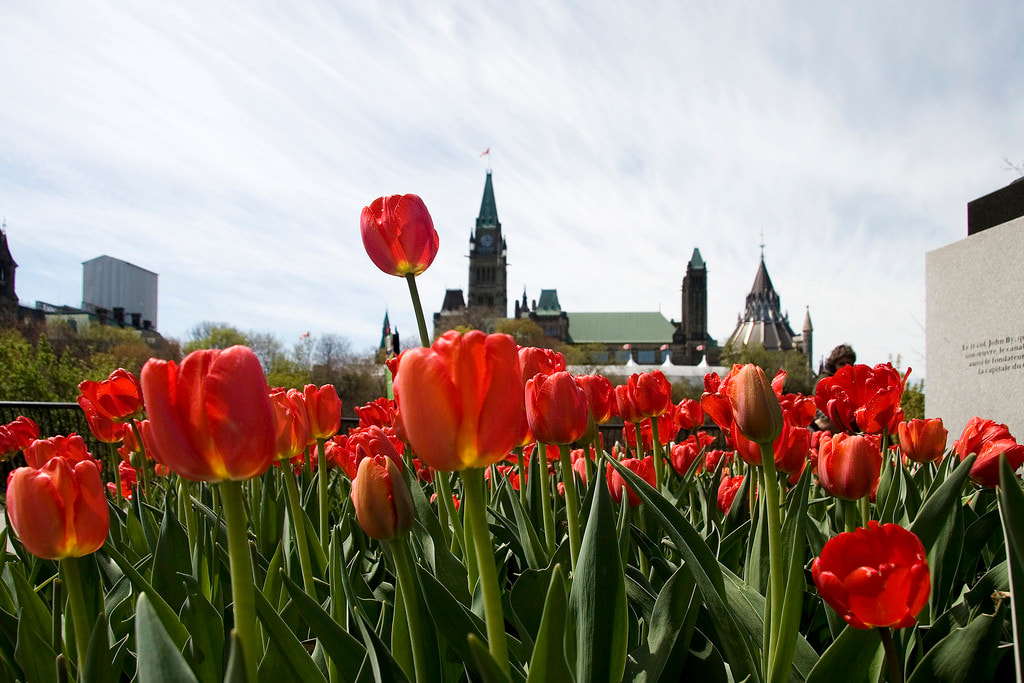
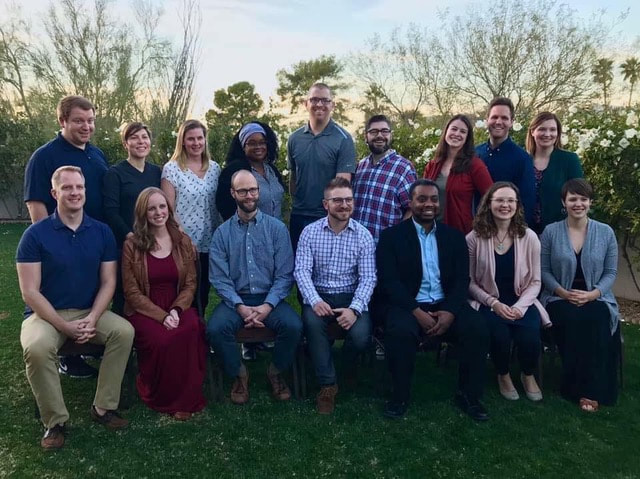
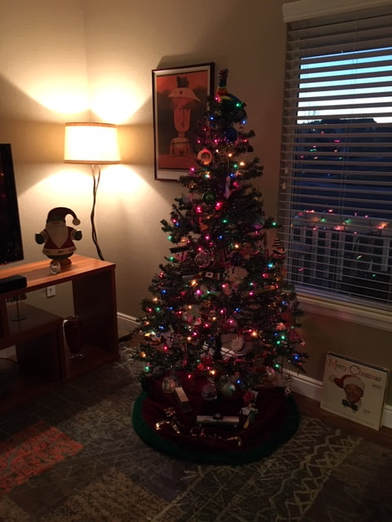

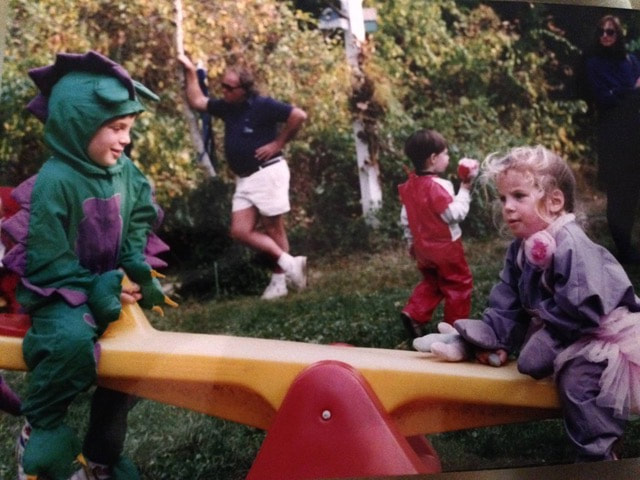
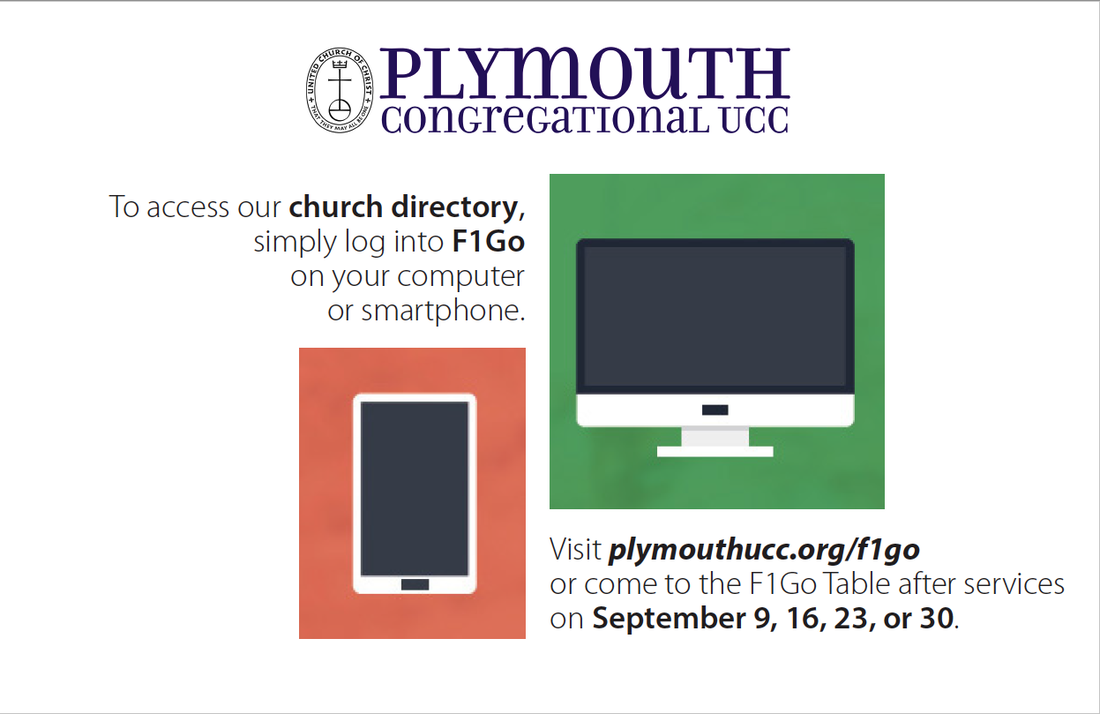
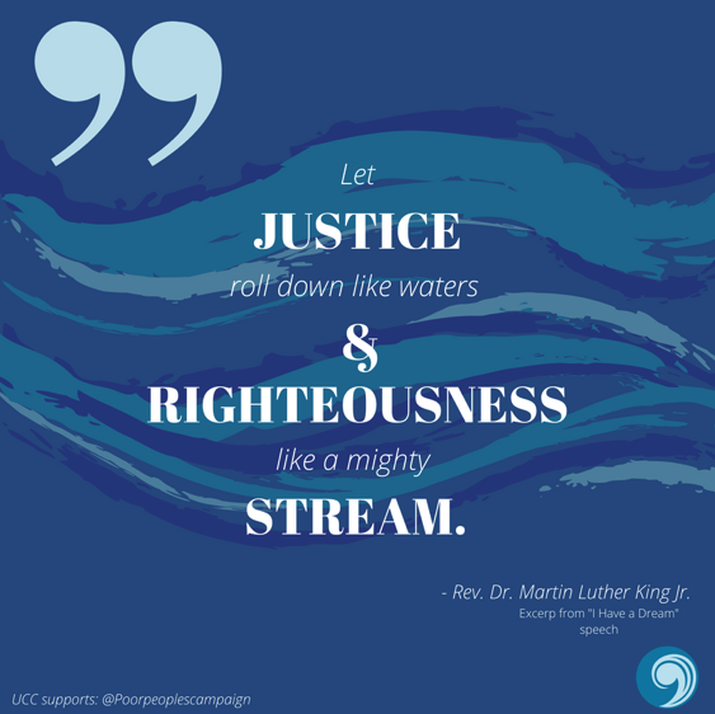

 RSS Feed
RSS Feed